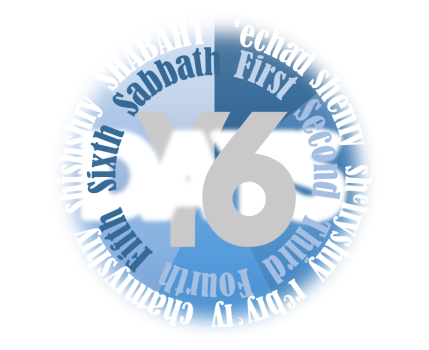Many Christians view the instructions regarding worship in the Old Testament as, at most, mildly interesting. Sure, if you’re one of those theologian types, you might study the liturgical system God instructed the Jewish people to use. But, for the rest of “us”, it’s only the New Testament worship that really matters. After all, we worship on Sunday because that is the day Jesus arose from the grave. Not much else really matters. Except, or course, the style of music.
Yes, I am using sarcasm here to make a point.

If we remember that the God of creation is the God of salvation, that John tells us the same Jesus who died on the cross and arose from the grave on the first day of the week is the same person of the Godhead that is also the Creator of all things, it may allow us to look at the Old Testament a little differently. That same Jesus who fed the five-thousand using just two fish and five loaves of bread is the same person of the Godhead, in pre-incarnate form, Who wrote out the Ten Commandments into solid rock. That same Jesus who healed the man born blind is the same person who gave Moses the detailed instruction for the temple and for worship to be used there.
If I may use a little more sarcasm to help make the point, do you think it might just matter a little? Since God took the time to both give the information about how He wanted to be worshipped, and then has, by His sovereign power and providence, preserved that information for us to have today, perhaps it might be more than just historically interesting.
OK. So, God doesn’t do things because He is arbitrary, or capricious, or simply likes to see how many rules we can follow before we give up. God does things with extreme purpose. He, in all of His ability, power, knowledge, is revealing Himself for His glory and our benefit. Since this is true, let’s ask, and attempt to answer, a few questions regarding the Old Testament worship.
What did God establish as part of the yearly worship of the Jewish people? Why did He do this? Is there a meaning in what He is doing?
I hope you can already see that there is meaning and purpose. So, what is it?
The Appearance Feasts
Let’s start with the “Appearance Feasts” described in the book of Leviticus. And, just to give you a hint, we should note there are seven of them. Yes. There it is again. Not because it is God’s favorite number, or the “number of God”. It is seven because God chose to use that number to bring Himself glory. For it to bring Him glory, the reason and purpose of the value of seven, the number of feasts, must be understandable. Do you get that? To bring God glory, we need to be able to understand why He chose seven. If we can’t know why, if it isn’t clear, then it doesn’t bring Him glory nor bring us any benefit.
These feasts are established and described in Leviticus 24. And, they begin with the following command:
And Yahweh spoke again to Moses, saying,2 “Speak to the sons of Israel and say to them, ‘The appointed times of Yahweh which you shall proclaim as holy convocations—My appointed times are these:
And Yahweh spoke again to Moses, saying, “Speak to the sons of Israel and say to them, ‘The appointed times of Yahweh which you shall proclaim as holy convocations—My appointed times are these: ‘For six days work may be done, but on the seventh day there is a sabbath of complete rest, a holy convocation. You shall not do any work; it is a sabbath to Yahweh in all your places of habitation. ‘These are the appointed times of Yahweh, holy convocations which you shall proclaim at the times appointed for them.
Leviticus 23:1-4
Here is the six days of work followed by the seventh day of rest again used to emphasize two critical truths: First, that every day, every week, every repeated cycle of day and night, day followed by day, week followed by week, we are to be worshipping our God Who is the God of Creation. His identity as Creator is critical to the proper worship of God. Second, there is a “set apart” day for intense and specific worship on the seventh day of every week. God anchors what is to come next with the designation of the week and weekly cycle of Sabbath worship. A cycle of six followed by a seventh.
God establishes and describes seven feasts that all Jewish men are to participate in. These occurred every year, throughout the year. They are, in order:
We are more familiar with some of these feasts because they correspond on the calendar with Christian holidays. Have you noticed that Easter seems to move every year? There is no fixed day, like Christmas which is always December 25th. Easter is linked to Passover in both the calendar and in what it represents. Unfortunately, for many Christian’s, that is the limit of their knowledge of these feasts.
Since God gave these to the Jewish people, and we understand that in this giving, God is revealing Himself, there is benefit for us to understand each of these a little deeper. This will also help us understand what the relationship is, if any, in the number of feasts (seven, remember?).

Jesus fulfilled (completed) the first four feasts, Passover, Unleavened Bread, First Fruits, and Shavuot, during His first advent. These Feasts all pointed to Him and His coming.
We should expect Him to complete (fulfill) the remaining Feasts. And, we can expect this to be associated with His second coming.
read more: The Spring Feasts – Passover

